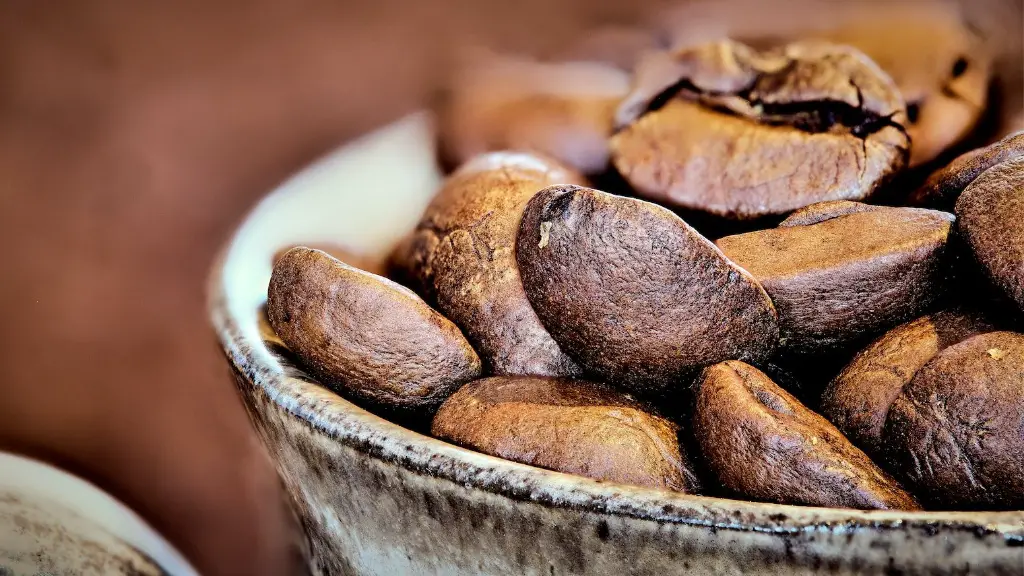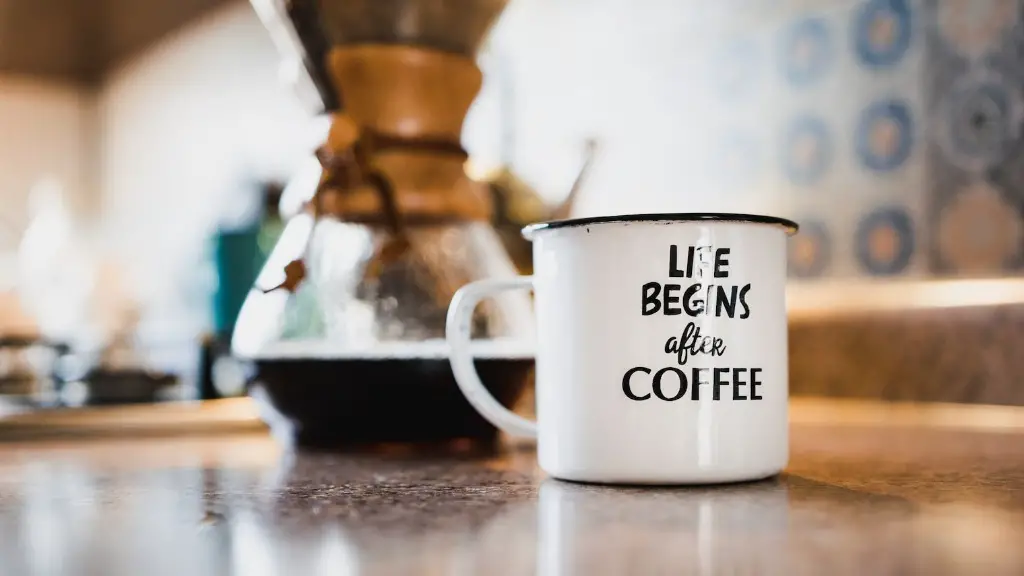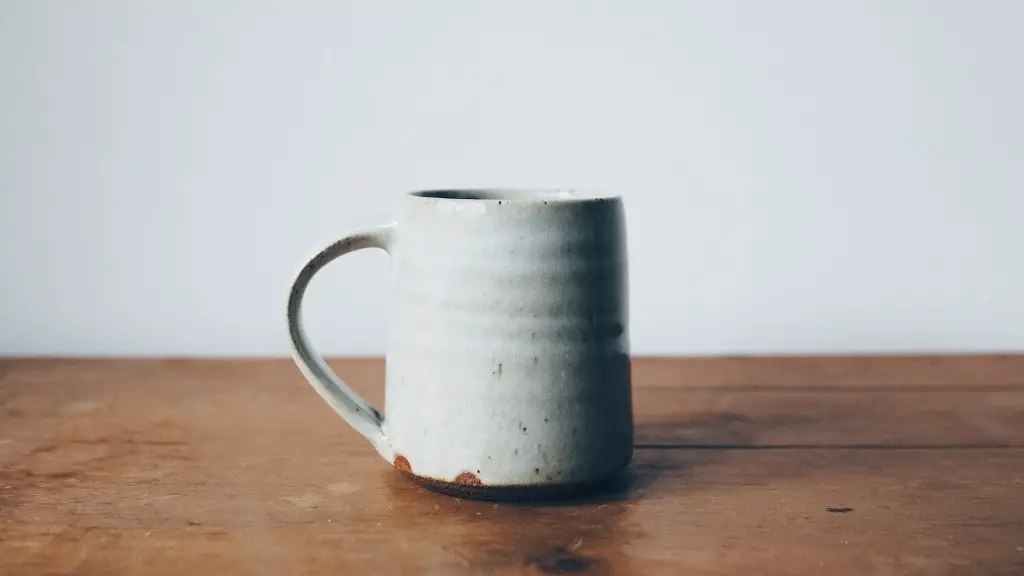According to health experts, it is best to avoid drinking coffee late in the evening–especially within four to six hours of going to bed–to promote better sleep. Although the amount of caffeine in a cup of coffee varies widely, depending on the type of brew and the size of the cup, a cup of regular brewed coffee typically contains between 70 and 140 mg of caffeine. Though coffee in moderation can be enjoyable, drinking coffee too close to bedtime can have unpleasant consequences.
Caffeine is a stimulant that affects the whole body. Although the effects of caffeine vary per individual, it generally takes 30 minutes for caffeine to take effect and about four to six hours for half the caffeine consumption to be eliminated. As the effects of caffeine can last for up to six hours, having coffee late in the evening will disrupt natural sleep patterns and make it hard to get the recommended seven hours of sleep per night.
Besides interfering with sleep, drinking coffee late in the evening can lead to further consequences. Caffeine absorption in the bloodstream can lead to an increased stress response for some individuals and help them become more easily agitated, which can lead to difficulty in being able to relax and fall asleep. Additionally, coffee’s high acidity can lead to dehydration, which can make it harder to sleep, and caffeine can also disrupt the body’s natural melatonin production, the hormone which is largely responsible for calling the body to rest.
Apart from drinking coffee, people should also limit their intake of other activities close to bedtime that could disrupt sleep. Watching television or scrolling through social media, for instance, can expose the body to stimulating light and disrupt the production of melatonin. Exercise should ideally take place at least a few hours before bed, because it can raise cortisol levels, the hormone that regulates energy, and make it harder to drift off to sleep.
In conclusion, it is best to avoid drinking coffee late in the evening and within four to six hours of bedtime. Although this may be difficult to imagine for many coffee-lovers, doing so can lead to improved sleep and help protect against possible caffeine-related health consequences.
Are there natural alternatives to coffee that can be drunk late in the evening?
Although avoiding coffee close to bedtime is important and recommended, some people may find relief in naturally occurring substitutes. For instance, there are numerous herbal teas and tisanes, such as chamomile, peppermint, lavender, or lemongrass, that could help induce sleep and be consumed close to bedtime. Additionally, certain fruits such as bananas, almonds, dates, and kiwis are known for their sleep-inducing properties and could be incorporated into the diet or eaten in late evening snacks.
Other drinks that can be consumed close to bedtime and help with sleep include tart cherry juice or kombucha, both of which contain no caffeine and can help with the production of melatonin. Similarly, decaffeinated herbal teas are good options, as is warm milk with honey, which can have a calming effect.
What is better for health – regular coffee or decaffeinated coffee?
Though decaffeinated coffee may appear to be the safest option to have close to bedtime, studies have found that there is still a degree of caffeine presence in decaf coffee. Additionally, many decaffeination processes involve the use of harmful chemicals, making regular coffee the healthier option. That being said, the amount of caffeine in regular coffee varies depending on the type and strength of the brew, so it is important to be aware of the type and amount of coffee being consumed and go for the less intense options.
Ultimately, for those who wish to continue consuming coffee close to bedtime, decaffeinated can be a helpful solution as its caffeine content is lower than that of regular coffee. But it is ultimately advised to avoid it within the four to six hours before bedtime and focus instead on natural, non-caffeinated alternatives that can help promote better sleep and overall health.
What could be the possible consequences of drinking coffee too late in the evening?
Consuming coffee late in the evening can lead to a host of unpleasant consequences. The stimulating effect caused by the caffeine prevents the body from reaching the necessary state of relaxation to enter sleep and can instead lead to restlessness, agitation and difficulty in being able to drift off. Additionally, the elevated stress response caused by caffeine can have adverse effects on overall health and be impacting in the long-term.
Furthermore, drinking coffee late in the evening can lead to dehydration, as coffee’s high acidity can reduce the production of saliva, thus confusing the body into believing that it is thirsty. Lastly, it can also disrupt the body’s natural melatonin production, the hormone responsible for alerting the body to when it is time to rest and sleep. Therefore, it is important to note that having coffee too close to bedtime can ultimately work against achieving a good night’s sleep.
Are there any other dietary changes to help promote better sleep?
Along with avoiding coffee late in the evening, there are certain dietary changes people can make to help improve sleep. Eating breakfast, lunch, and dinner at regular times can help regulate circadian rhythms and boost sleep. Also, it is advised to avoid big meals late in the evening, as eating large meals close to bedtime may cause sleep disturbances. Healthy snacks a couple of hours before bedtime, such as oatmeal cookies or a banana, can be a better option and help make it easier to drift off to sleep.
Lastly, drinking herbal tea or warm milk before going to bed can help make the body relax. This can be complemented with the ingestion of certain minerals, such as magnesium, calcium, and zinc, which have sleep-promoting properties. People should also be aware of their intake of ‘blue light’ from certain digital screens (i.e. television and smartphones) before bed as it can also interfere with sleep.
What are some tips to help manage caffeine intake and optimize its effect in the body?
Although many individuals enjoy their morning cup of coffee and benefit from its energizing effects, it is recommended to monitor caffeine intake levels. It is best to refrain from having more than two to three cups of coffee a day, as going over this limit could lead to over-stimulation and possible negative health consequences.
Those who feel the need to consume caffeine throughout the day could alternate with decaffeinated options to avoid the stimulation. Additionally, it is best to adjust the timing of caffeine intake, so it is consumable early in the day and not late in the evening. Ideally, it is best to complete caffeine intake at least four hours before bedtime, as this should provide enough time for it to be absorbed and metabolized by the body.
How can drinking coffee in the morning help promote better sleep?
Having coffee in the morning can help promote better sleep in the evening. Drinking coffee in the morning will help individuals benefit from its energizing and alerting effects, finding the much needed energy during a long day of activities. Additionally, the stimulating effects of caffeine will peak during daytime hours and reduce in the afternoon, helping individuals find the necessary relaxation to reach a deeper and more restful sleep in the evening.
Also, caffeine has been known to improve memory, cognitive skills, and boost concentration, which can all help individuals be more productive and efficient during the day. This will in turn free up time for activities in the evening, help them live a balanced lifestyle, and ultimately be more rested for a good night’s sleep.
What are the best coffee-brews to drink in the morning?
Different types of coffee-brews exist that can be helpful to choose from in the morning. Espresso tends to contain the highest amount of caffeine and is usually recommended for those mornings that require an extra boost of energy. For individuals who enjoy the taste of coffee but are looking for an energy pick me up lower in caffeine, drip-brewed coffee is a great alternative. Cold brew coffee provides similar caffeine content as drip-brewed coffee but has a light, mellow flavor.
For those looking to enjoy coffee without intermediation and benefit from its nutritional properties, pour-over coffee is a preferred option as it filters out more micro-granules, leaving only organic compounds, oils, and lipids. Lastly, AeroPress coffee is also a great option as it is versatile and provides a strong flavor, a single serve portion, and no grounds in the cup.
Ultimately, the best type of coffee depends on individual preference and desired caffeinated effects. From the many options available, finding the one that suits better the mornings’ needs can help ensure the daily consumption of coffee is optimized and leveraged correctly.





